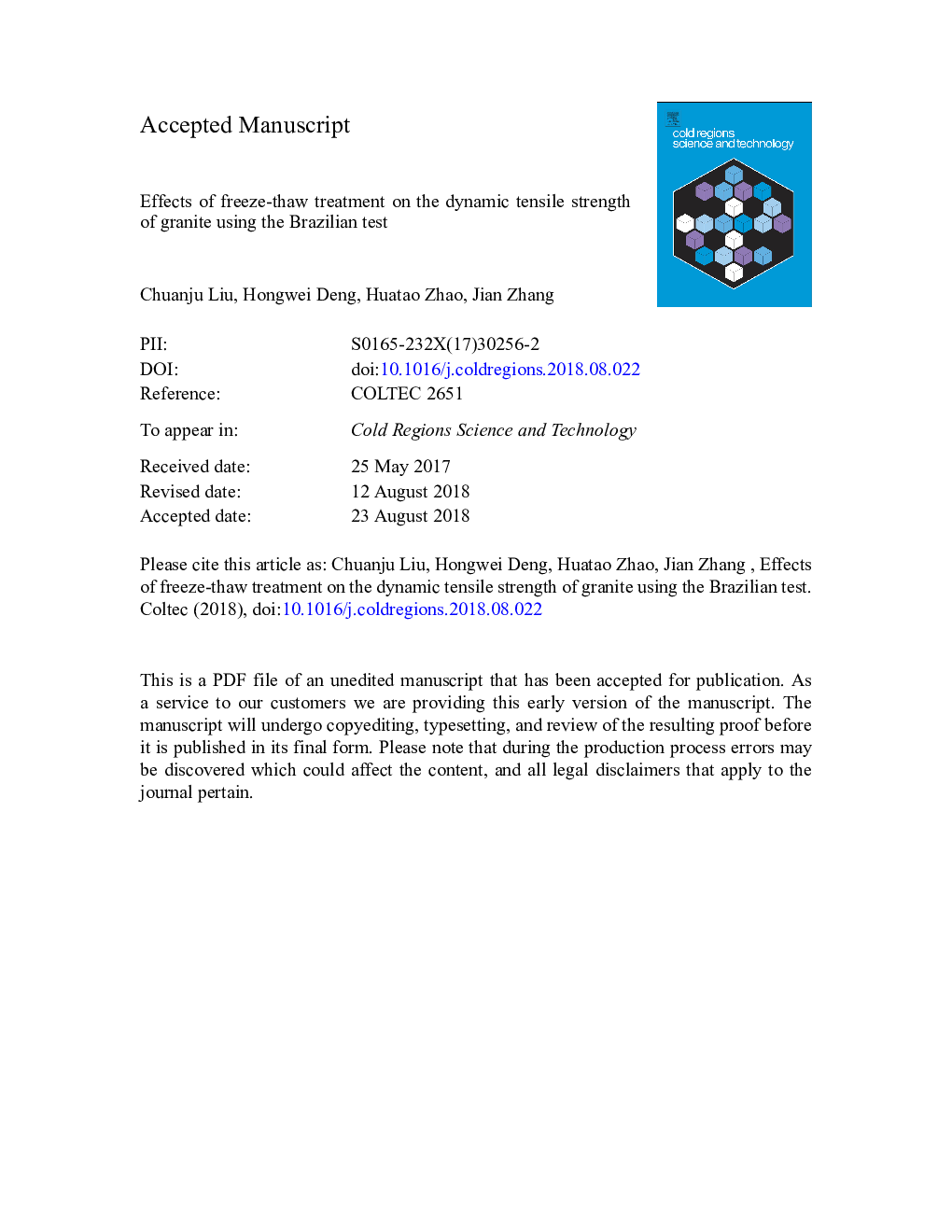| Article ID | Journal | Published Year | Pages | File Type |
|---|---|---|---|---|
| 10119898 | Cold Regions Science and Technology | 2018 | 16 Pages |
Abstract
The deterioration mechanism and dynamic tensile properties of rock subjected to the effects of freeze-thaw cycles are investigated in this study. Brazilian disc granite specimens are treated by 0, 30, 60, 90 and 120 freeze-thaw cycles. Freezing and thawing temperatures are â20â¯Â°C and 20â¯Â°C respectively. The microscopic damage in the rock samples induced by freeze-thaw treatment is detected by the nuclear magnetic resonance (NMR) technique. T2 spectrum and magnetic resonance imaging (MRI) are used to analyze the effect of freeze-thaw cycles on the pore structure of rock samples. Brazilian splitting tests are performed by a split Hopkinson pressure bar (SHPB) system to measure the dynamic tensile strength of granite and to investigate the effect of freeze-thaw cycles on the dynamic tensile strength and the dynamic mechanical behavior. A formula for dynamic tensile strength prediction considering loading rates and freeze-thaw cycles is presented to quantify the results. The dynamic failure process of specimen is observed by a high-speed camera, it was found that the rock materials were more susceptible to damage and deteriorate after freeze-thaw treatment compared with the untreated rock.
Keywords
Related Topics
Physical Sciences and Engineering
Earth and Planetary Sciences
Earth and Planetary Sciences (General)
Authors
Chuanju Liu, Hongwei Deng, Huatao Zhao, Jian Zhang,
